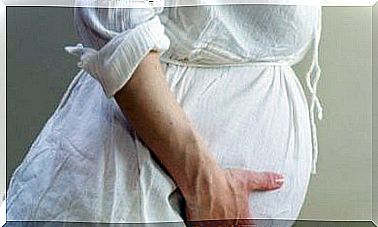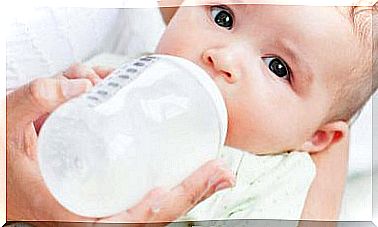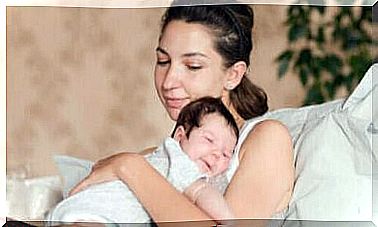What Should First-time Mothers Know?
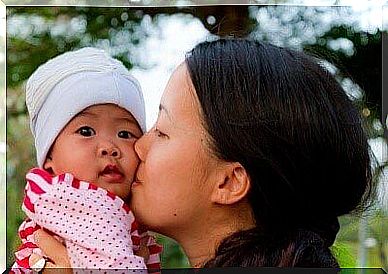
Going through childbirth and the immediate care of a newborn that follows is a challenge for anyone who becomes a mother for the first time. Pregnancy, childbirth, and caring for a child require physical, mental, and emotional effort. In this article, we will share a few things that it is good to know for every first-time mother.
What should first-time mothers know?
Everyone who becomes a mother has to deal with things she didn’t know anything about before. Motherhood is one of the best experiences in a woman’s life, but it is normal for a first-time mother to experience a variety of fears and worries.
How should a child be raised? What is normal and what are the warning signs that need to be taken seriously? For example, these are common questions that move in the mind of a fresh parent. The strange color of the baby’s first stools and his repeated crying combined with all the unsolicited advice can make anyone feel dizzy with a new parent.
That is why today we take an overview of all the facts that new mothers face. Women who are expecting their firstborns should read the list carefully and put the things it says behind their ears.
Start of breastfeeding
It is good for a fresh mother to keep in mind that there is no better food for a baby than breast milk. Breast milk satisfies all the baby’s nutritional needs and strengthens his or her resistance, in addition to which it also plays a role in the child’s emotional and intellectual development.
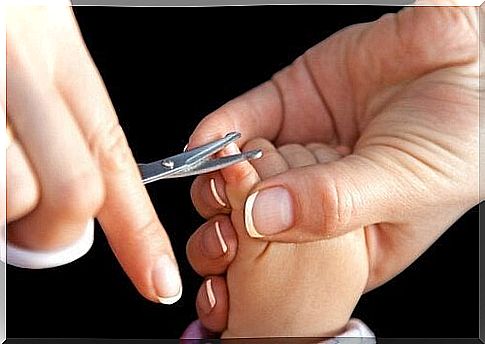
Breastfeeding benefits not only the baby but also the new mother. Breastfeeding speeds up the mother’s recovery from childbirth, promotes recovery of the labor organs and helps with weight management. Breastfeeding has also been found to have long-term health-promoting properties, such as a lower risk of osteoporosis and certain cancers.
Breastfeeding also strengthens the bond between mother and child and their natural close connection.
In some cases, breastfeeding is uncomfortable and even painful for the mother. It is common for a mother to feel discomfort or tenderness at the beginning of breastfeeding, but severe pain is not normal. The pain can be caused by, for example, the baby’s poor suction, the baby’s tight tongue, breast infection, or blockage of the milk ducts.
First diaper change
Don’t panic if you notice your baby’s first stools are dark in color. This is perfectly normal, although it may surprise a new parent. The first, greenish-black and sticky stool of such a newborn is called amber.
Another detail that often stresses fresh parents is the fast pace at which diapers have to be changed. The diaper of a small baby often needs to be changed 12 times a day, which is perfectly normal. Needless to say, proper hygiene is essential at every diaper change.
Wash your baby’s butt with warm water and pat dry your skin gently with a clean towel. To avoid diaper rash, you can let your baby be without the diaper for a while to allow his or her skin to breathe.
Don’t cramp!
Everyone who becomes a mother has heard of the baby’s stomach problems and cramps. When your child has cramps, he cries constantly and doesn’t calm down at all. The problem is due to gas accumulating in the intestines.
Efforts can be made to calm and improve the child’s condition, for example with a massage. You can grab your baby’s feet and move them up and down as if he were pedaling the bike in the air. You can also rub his stomach counterclockwise.
Bath time
According to scientific studies, it is not advisable to sow a baby immediately after birth to keep the baby on his or her skin intact. Many experts in the care of newborns and babies believe that as a child, the skin of a newborn is protected when it enters the world. It also acts as a kind of wall against inflammation and protects the skin from dryness and dermatitis, to which the newborn is very susceptible.
Also, the baby cannot be sown properly before the pole stem comes off. However, you can clean him with a soft sponge or cloth. The hub area can be cleaned very gently with a cotton swab, but it is very important that the hub is dried thoroughly afterwards. If you notice a bad smell, blood or rot in the navel area, you should contact a clinic.
According to experts, it is a good idea to start feeding your baby when he is 7-15 days old. By now, the umbilical cord stub is probably already detached and there is no longer a risk of inflammation. At this point, the bath should be short, no more than five minutes.
To prevent hot water from burning the baby, adjust the water temperature to about 37 degrees. Test the temperature on your elbow or wrist, not with a hand that is used to frequent temperature changes. The water should be warm but not hot. As for the amount of water, aim for the water to be about 10 centimeters deep. This allows you to place your baby firmly on the bottom of the tub so that he does not slip or fall out of your hands.
Baby sleeping times
New mothers are advised to lower their baby to their side to avoid suffocation. It also reduces the risk of sudden death. Another recommendation is that the baby sleep in the same room with his or her parents until the 6th month of life.
One common mistake made by new mothers is to avoid noise when their children are sleeping during the day. It is best to let your child fall asleep surrounded by the usual sounds of home so that he gets used to them.
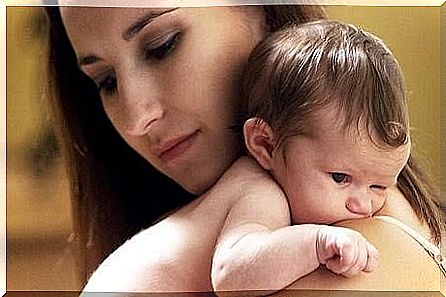
The truth is, your child is not going to sleep properly at first. But it is still important to make a clear distinction between day and night, and to associate darkness with bedtime.
When a child is one and a half months old, he or she begins to associate his or her sleeping time with the amount of light. This makes him more inclined to rest at night.
The baby’s bed should be tilted slightly to prevent reflux. Experts suggest that mothers should place padding around their baby to make them feel safe and protected. The close atmosphere makes the child feel as if he is constantly being embraced.
Tears and cries
What? Did you think all your baby crying would sound the same? Welcome to the world of motherhood.
You start to notice different cries associated with different needs. Here are the four most common:
- The need for a diaper change.
- The baby is hungry or thirsty.
- The baby is tired.
- The baby is too warm or too cold.
If you’ve taken care of all of these basic needs and the crying still continues, it can certainly feel weird. Gentle baby with kisses and strokes, for this makes him feel loved and cared for.
Enjoy these moments!
Start your own adventure
Caring for inexperience and fatigue is normal, so there is nothing wrong with asking for help.
No one has been born with internal maternal abilities, nor are there any magics that could make a new mother the best mother in the world right away.
The road can only be created by walking through it, so enjoy the scenery and we wish you a good journey!


